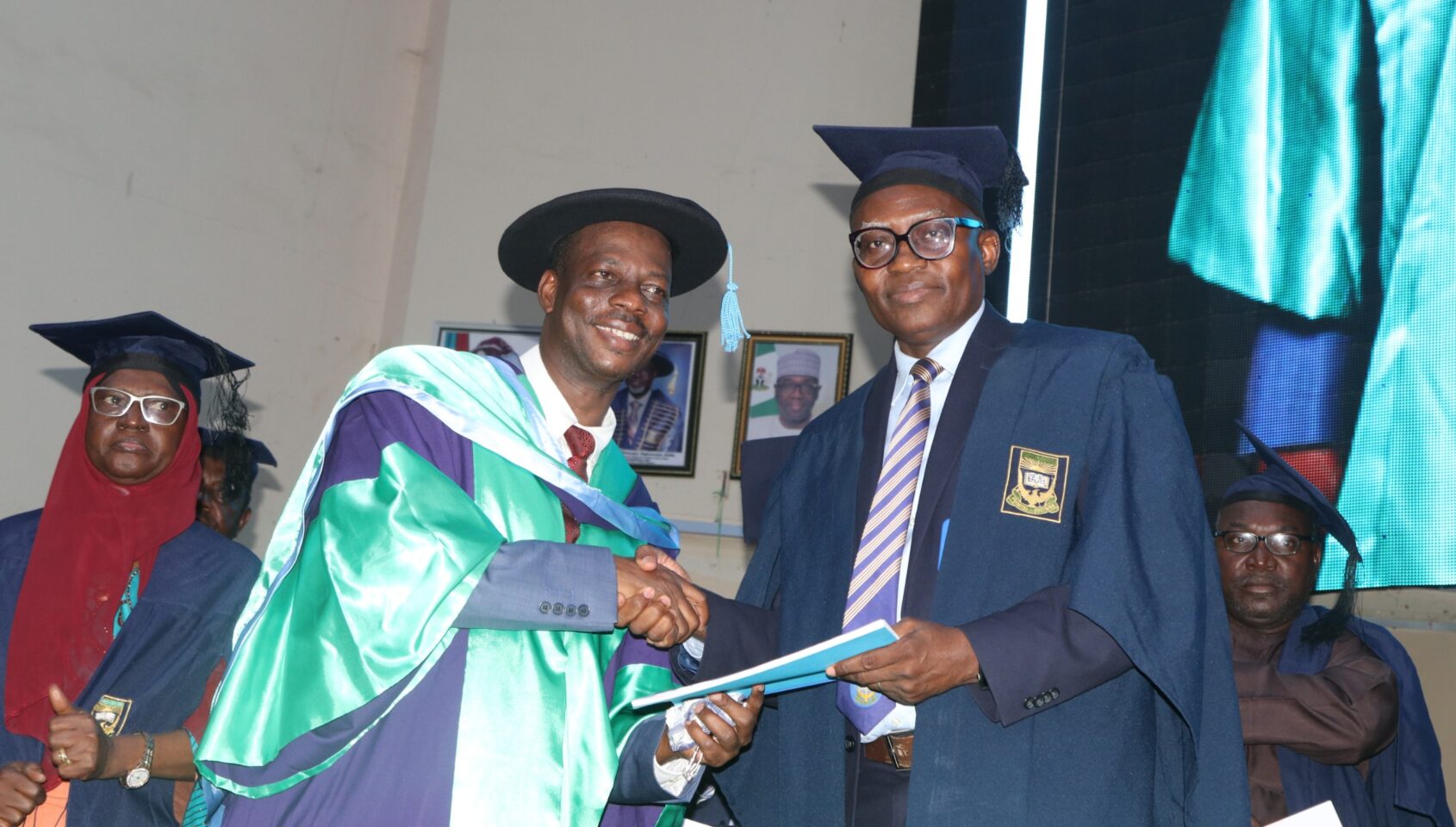
Campus News

A former Head of the Department of Business Law, University of Ilorin, Prof. Mubarak Tijani Adekilekun, has called for greater Public-Private Partnership (PPP) towards the enhancement of the provision and maintenance of infrastructural facilities across Africa.
Prof. Adekilekun made this appeal last Thursday (January 30, 2025) while delivering the 273rd Inaugural Lecture of the University, titled “Devils and Saints in the Legal Landscape of Public-Private Partnership in Africa”, at the University Auditorium.
The Inaugural Lecturer, who expressed disappointment in the magnitude of poor and inelegant quality of infrastructures in Africa, despite the abundance of enabling human and material resources, said that it was high time that the partnership between the public and private sectors was improved upon to enhance the quality of life of Africans.
He explained that it is incredible that despite Africa being home to about 30% of global mineral resources, and 12% of the world’s oil reserves, about 50% of African citizens still lack access to electricity as 418 million people across the continent have no access to safe and clean water, while 40 billion hours are spent annually by African women and children in search of safe drinking water.
Prof. Adekilekun noted that it is disturbing that more than 60 years after many African countries secured independence from colonialists, only South Africa can be said to be developed while the rest are categorised into the Third World because of their general backwardness in every index of development.
He explained that the adoption of Public-Private Partnership would ensure the introduction of the effective funding principles of the private sector into public administration.
Prof. Adekilekun also noted that doing so would also reduce ineffectiveness and wastages associated with public spending as it would also make up for lack of managerial skills prevalent in the public sector in the continent.
To enhance Private-Public Partnership, Prof. Adekilekun called for the identification and amendment of all potentially conflicting legislative provisions in the national laws. He explained that laws that could hinder the proper execution and implementation of PPP projects should be identified and amended accordingly.
He, however, noted that due to the complex nature of PPP transactions, different laws may be applicable, such as laws regulating tax, insolvency, arbitration, and land acquisition, among others. He, therefore, insisted that potentially conflicting areas of these laws must be identified and amended accordingly.
While acknowledging that normally in every jurisdiction, it is the government ministries, departments and other agencies that are vested with the powers to grant concessions, Prof. Adekilekun said that the law should specifically identify which of the ministries, agencies, and departments is vested with such powers in respect of a specific project. This, according to him, will help to reduce duplication of the same project by different agencies or departments of the government.
Citing South Africa, which operates a federal structure, as an example, Prof. Adekilekun said that the Public Finance Management Act 1999 and the Municipal Finance Management Act, 2003 were made to ensure consistency in financial accountability for both the national and local spheres. He said that the laws spell out the functions and powers of each of the organs of government in relation to the execution of PPP projects.
Prof. Adekilekun also said that contracting authorities should be allowed to reasonably negotiate the terms of the PPP contract if necessary, within the limits or guidelines specified by the law.
The Inaugural lecturer, identified and listed several PPP models and also called for the establishment of a fair, equitable and transparent procedure for all PPP transactions, saying that this is one of the core principles of any model law.
Prof. Adekilekun said that such a model law should provide for a comprehensive procedure for seeking redress through arbitration or a court of law as he noted that due to the fact that PPP disputes are commercial in nature, there should be provisions for an internal mechanism for the settlement of such disputes, and it is only when this fails that a party can go to arbitration or finally to a court of law.
He also called for the provision of adequate and reasonable financial incentives or government guarantees for a prospective private sector participant wherever necessary. He explained that some projects may involve a very huge amount of money for execution, saying that the private sector may sometimes have to source funds locally and sometimes from international financiers. These financiers may require an undertaking, a guarantee or an assurance from the government of the country where the project is to be executed before funds are made available.
The Inaugural Lecture, which was presided over by the Vice Chancellor, represented by the Deputy Vice Chancellor (Management Services), Prof. Adegboyega Adisa Fawole, was attended by many dignitaries including the Talba of Ilorin and former Vice Chancellor of the University of Ilorin, Prof. Shuaibu Oba AbdulRaheem; the National Secretary of the All Progressives Congress (APC), Senator Bashiru Ajibola; the Spiritual Leader of the Ansarul Islam Society of Nigeria, Shaykh Abdulkadir Muhammad Kamaldeen; two former Grand Kadis of Kwara State, Justice Idris Abdullahi Haroon and Justice Saliu Olohuntoyin Muhammad.
Also in attendance were the Timi of Ede, Oba Munirudeen Lawal; the Olupo of Ajase-Ipo, Oba Ismail; the Olupako of Share, Oba Haruna; the Oba of Agbeku, Alh. AbdulAzeezAgboola; the father of the Inaugural Lecturer, who is also the Grand Mufti of Ede and Waziri Musulumi of Yorubaland, Shaykh Abdullateef Adekilekun, as well as three Senior Advocates of Nigeria, Prof. Yusuf Olaolu Ali, Alhaji Adebayo Adelodun and Alhaji Kehinde Kolawole Eleja; lawyers in both public and private practice; associates of the Inaugural Lecturer; students; families and loved ones ,among several others.